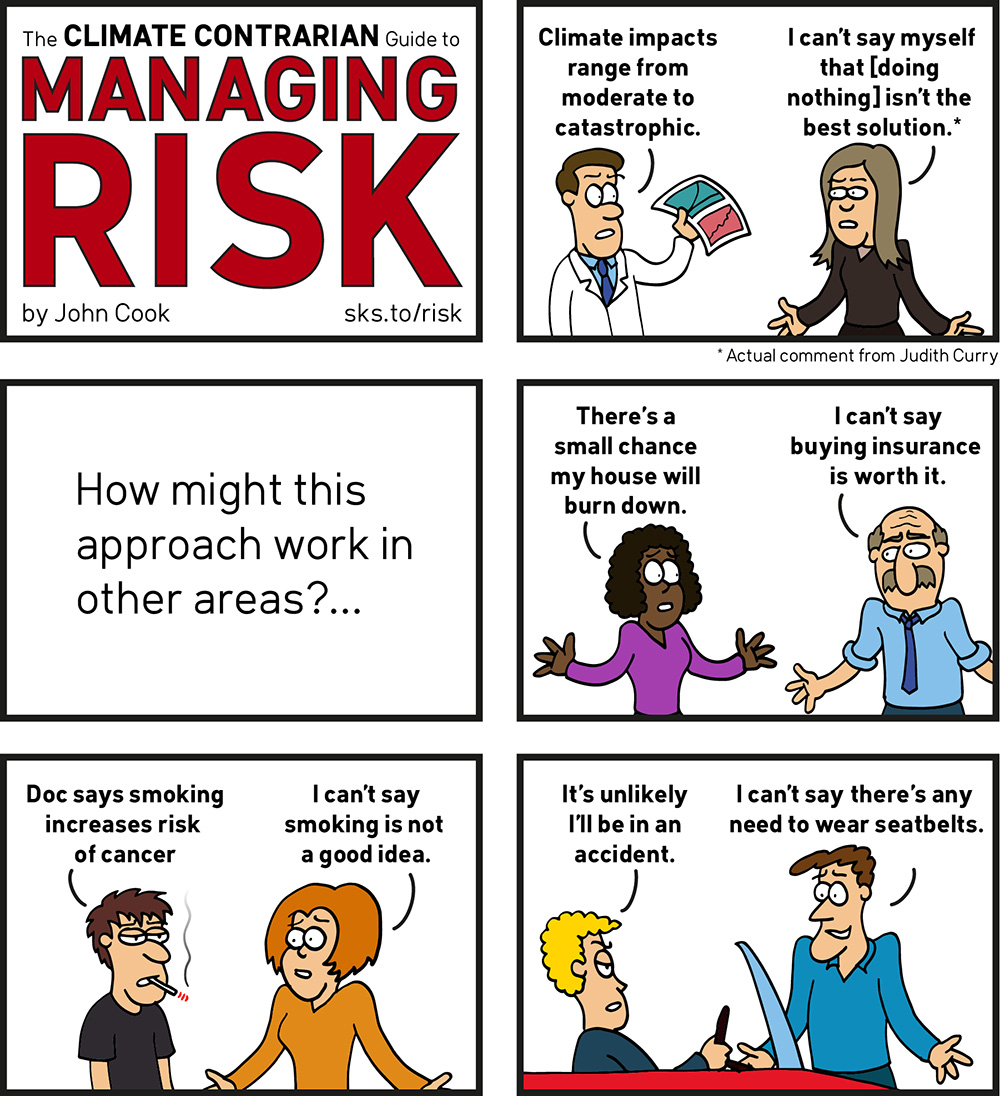
As has become the norm for media outlets owned by Rupert Murdoch, just before a half million people participated in the People’s Climate March around the world, The Wall Street Journal published an opinion piece downplaying the risks and threats posed by human-caused global warming. The editorial was written by Steven Koonin, a respected computational physicist who claims to have engaged in “Detailed technical discussions during the past year with leading climate scientists,” but who is himself not a climate scientist.
Koonin did admit that the climate is changing and humans are largely responsible, and noted,
There is well-justified prudence in accelerating the development of low-emissions technologies and in cost-effective energy-efficiency measures.
This is a step in the right direction. Unfortunately, Koonin’s editorial focused almost exclusively on the remaining uncertainties in climate science. Ironically, he stated,
Any serious discussion of the changing climate must begin by acknowledging not only the scientific certainties but also the uncertainties, especially in projecting the future.
But Koonin himself got the certainties wrong. For example, we know that humans are the main cause of the current climate change, responsible for about 100% of the global warming since 1950. However, Koonin’s editorial claimed,
The impact today of human activity appears to be comparable to the intrinsic, natural variability of the climate system itself.
This is simply incorrect. As climate scientist Michael Mann told Climate Science Watch in their thorough response to Koonin’s piece,
The fact is that the actual peer-reviewed scientific research shows that (a) the rate of warming over the past century is unprecedented as far back as the 20,000 years paleoclimate scientists are able to extend the record and (b) that warming can ONLY be explained by human influences.
Indeed, it is the RATE of warming that presents such risk to human civilization and our environment.
Climate scientists Michael Oppenheimer and Kevin Trenberth also took issue with Koonin’s assertion about the impact of human activity, saying,
Warming is well beyond natural climate variability and projected rates of change are potentially faster than ecosystems, farmers and societies can adapt to without major disruptions. Many details remain to be settled, and weather and natural variability will always mask some effects, especially regionally. But economic analysis of these risks supports substantial action beyond “no regrets” strategies. To argue otherwise as Koonin does is to ignore decades of research results.
Koonin primarily focused on the uncertainty in the specific impacts of continued rapid global warming. However, he glossed over the fact that those uncertainties range from generally bad impacts to potentially catastrophic impacts. Even in a best case scenario, climate science research indicates that we anticipate experiencing widespread coral mortality, hundreds of millions of people at risk of increased water stress, more damage from droughts and heat waves and floods, up to 30% of global species at risk for extinction, and declined global food production, for example.
Those are the anticipated impacts if we limit global warming to not much above 2°C warming as compared to pre-industrial levels. Accomplishing that would require intensive efforts to reduce human greenhouse gas emissions, and if we fail, the consequence will be far worse.
The good news is that slowing global warming can be accomplished with minimal economic impact. In fact, economic research consistently shows that reducing greenhouse gas emissions, if done right, is far cheaper than paying for the damages caused by unabated climate change. For example, a revenue-neutral carbon tax could create jobs and grow the economy. Two recent studies by the New Climate Economy Project and the International Monetary Fund likewise found that reducing carbon pollution could grow the economy, as summarized by The Guardian.
As Koonin noted in his piece, risk management is key in determining how to respond to the threats posed by climate change. On the one hand, we have a threat to the entire global climate on which every species on Earth relies, which humans are in the process of destabilizing at a rate more rapid than many species can adapt.
On the other hand, we have concerns about the impacts of climate policy on the economy. However, numerous studies have found that if done right, those policies can grow the economy, and will certainly be cheaper than paying for the damages of unabated climate change.
While uncertainties remain about whether the impacts of climate change will be bad, catastrophic, or somewhere in between, that’s precisely the kind of scenario in which uncertainty is not our friend. When faced with a risk to something so important, humans are usually smart enough to take action to manage that risk. For example, we buy home insurance, we wear seat belts, and fewer people now smoke than in previous generations who were unaware of the associated risks.
Posted by dana1981 on Monday, 22 September, 2014
 |
The Skeptical Science website by Skeptical Science is licensed under a Creative Commons Attribution 3.0 Unported License. |